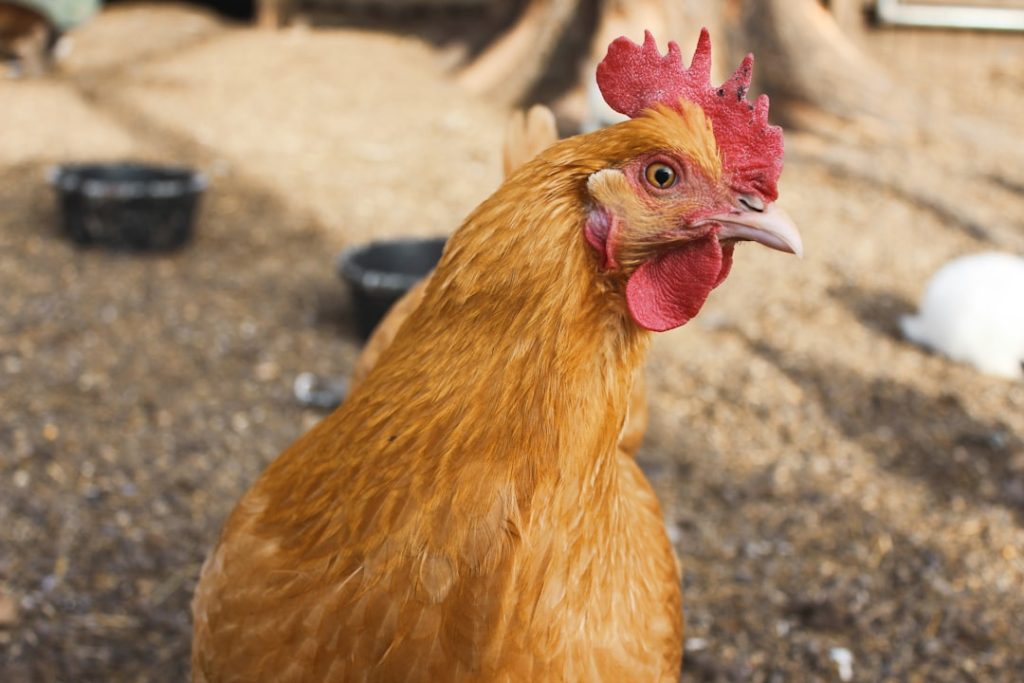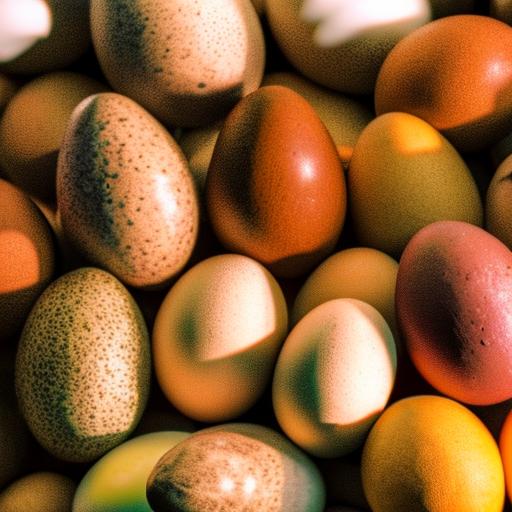Frizzle chickens are characterized by their distinctive curly feathers, which turn outward instead of lying flat against the body. This unique appearance is the result of a genetic mutation rather than a specific breed. Frizzle chickens can be found in various chicken breeds, resulting in a range of sizes, shapes, and egg-laying capabilities.
The frizzle trait can occur in multiple colors and patterns, adding visual diversity to flocks. These chickens are popular among poultry enthusiasts and breeders due to their eye-catching appearance and friendly temperament. Frizzle chickens are known for their docile nature, making them suitable for backyard chicken keepers and hobby farmers.
Their sociable personality adds an interesting dynamic to mixed flocks. The genetic mutation responsible for the frizzle feather trait is highly sought after in the poultry community. Breeders often work to incorporate this trait into different chicken breeds, creating unique combinations of frizzle feathers with various other characteristics.
This versatility allows for a wide range of frizzle chicken varieties, each with its own set of attributes beyond the distinctive feather structure.
Table of Contents
Key Takeaways
- Frizzle chickens are a unique breed known for their curly feathers and friendly disposition.
- The history of frizzle chickens dates back to the 17th century in Asia, and they were first introduced to the Western world in the 19th century.
- When selecting breeding stock for frizzle chickens, it’s important to choose birds with good conformation and healthy, well-curled feathers.
- Breeding frizzle chickens for show requires careful attention to feather quality, color, and overall appearance.
- Health considerations for breeding frizzle chickens include monitoring for feather and skin issues, as well as ensuring proper nutrition and housing.
The History of Frizzle Chickens
The Introduction to Europe
Frizzle chickens were first introduced to Europe in the 17th century, where they quickly gained popularity among poultry enthusiasts and breeders. The frizzle gene is a dominant trait, which means that when a frizzle chicken is bred with a non-frizzle chicken, approximately half of the offspring will inherit the frizzle gene.
Breeding and Characteristics
This has allowed frizzle chickens to be bred into a wide variety of chicken breeds, leading to the diverse range of frizzle chicken varieties that exist today. Frizzle chickens have been bred for both their unique appearance and their friendly temperament, making them a popular choice for backyard chicken keepers and hobby farmers.
A Lasting Impact
Over the years, frizzle chickens have become a staple in many poultry shows and exhibitions, where they are admired for their striking appearance and charming personality. The history of frizzle chickens is one of fascination and admiration, as they continue to capture the hearts of poultry enthusiasts around the world.
Selecting Breeding Stock for Frizzle Chickens

When selecting breeding stock for frizzle chickens, it is important to choose birds that exhibit the desired frizzled feather trait while also considering other important factors such as health, temperament, and conformation. Look for birds with well-curled feathers that are evenly distributed across the body, as this is a key characteristic of the frizzle gene. It is also important to select birds with good overall health and vigor, as this will contribute to the success of the breeding program.
In addition to the frizzled feather trait, it is important to consider other traits such as egg production, size, and color when selecting breeding stock for frizzle chickens. Choose birds that exhibit the desired traits for your breeding goals, whether it be high egg production, large size, or specific color patterns. It is also important to consider the temperament of the birds, as friendly and docile birds are often preferred for backyard flocks.
By carefully selecting breeding stock that exhibits the desired traits and characteristics, you can ensure that your frizzle chicken breeding program is off to a strong start.
Breeding Frizzle Chickens for Show
Breeding frizzle chickens for show requires careful consideration of the breed standard and an understanding of genetic inheritance. When breeding frizzle chickens for show, it is important to select breeding stock that closely adheres to the breed standard in terms of feather curl, color, size, and overall conformation. This will help ensure that the offspring produced from the breeding program will have the best chance of success in poultry shows and exhibitions.
In addition to selecting breeding stock that meets the breed standard, it is important to have a thorough understanding of genetic inheritance and how traits are passed down from parent birds to their offspring. This will help you make informed breeding decisions and increase the likelihood of producing show-quality frizzle chickens. By carefully selecting breeding stock that closely adheres to the breed standard and understanding genetic inheritance, you can increase the chances of producing high-quality frizzle chickens that are competitive in poultry shows and exhibitions.
Health Considerations for Breeding Frizzle Chickens
When breeding frizzle chickens, it is important to prioritize the health and well-being of the birds to ensure the success of the breeding program. Frizzle chickens are generally hardy and resilient birds, but there are certain health considerations that should be taken into account when breeding them. It is important to provide a clean and spacious living environment for the birds, as well as a balanced diet that meets their nutritional needs.
Regular health checks and preventative measures such as vaccinations can also help maintain the overall health of the birds. In addition to general health considerations, it is important to be mindful of potential genetic issues that may arise from breeding frizzle chickens. The frizzle gene can sometimes be associated with skeletal or feather abnormalities, so it is important to monitor offspring for any signs of these issues and make informed breeding decisions accordingly.
By prioritizing the health and well-being of the birds, you can ensure that your breeding program produces healthy and robust frizzle chickens.
Tips for Successful Breeding of Frizzle Chickens

Setting Clear Breeding Goals
Successful breeding of frizzle chickens requires careful planning, attention to detail, and a thorough understanding of genetics. When breeding frizzle chickens, it is important to have a clear breeding goal in mind and select breeding stock that closely aligns with these goals. Whether you are breeding for specific color patterns, egg production, or show quality, having a clear vision for your breeding program will help guide your breeding decisions.
Keeping Accurate Records
It is also important to keep detailed records of your breeding program, including information about parentage, traits exhibited by offspring, and any health issues that may arise. This will help you track the progress of your breeding program and make informed decisions about future breeding pairings.
Seeking Expert Guidance
Additionally, seeking guidance from experienced breeders or poultry experts can provide valuable insights and advice for successful breeding of frizzle chickens.
The Future of Frizzle Chicken Breeding
The future of frizzle chicken breeding looks bright as these unique and charming birds continue to capture the hearts of poultry enthusiasts around the world. With advancements in genetic research and breeding techniques, there are exciting opportunities to further develop and refine the traits exhibited by frizzle chickens. Breeders are continually working to improve feather curl patterns, color variations, and overall conformation to produce high-quality frizzle chickens that meet breed standards and excel in poultry shows and exhibitions.
As interest in backyard poultry keeping continues to grow, frizzle chickens are likely to remain a popular choice for those looking to add some personality and visual appeal to their flocks. With careful breeding practices and a focus on health and welfare, the future of frizzle chicken breeding holds great promise for producing exceptional birds that continue to captivate and delight poultry enthusiasts for generations to come.
If you are interested in breeding frizzle chickens, you may also want to consider the question of coop size for your chickens. This article discusses the ideal coop size for chickens, which is an important factor to consider when breeding and raising chickens.
FAQs
What are frizzle chickens?
Frizzle chickens are a breed of chicken known for their unique curly or frizzled feathers. They come in a variety of colors and are popular for their ornamental appearance.
How do you breed frizzle chickens?
To breed frizzle chickens, you can mate a frizzle chicken with a non-frizzle chicken to produce offspring with frizzled feathers. It’s important to note that breeding two frizzle chickens together can result in a higher percentage of offspring with curly feathers, but it can also lead to genetic issues.
What are some considerations when breeding frizzle chickens?
When breeding frizzle chickens, it’s important to consider the potential genetic issues that can arise from breeding two frizzle chickens together. It’s also important to ensure that the chickens have proper housing, nutrition, and care to support the breeding process.
Are there any health concerns with breeding frizzle chickens?
Breeding frizzle chickens can potentially lead to genetic issues such as skeletal abnormalities and reduced fertility. It’s important to be aware of these potential health concerns and to breed responsibly to minimize the risk of these issues.
What are some tips for breeding frizzle chickens?
Some tips for breeding frizzle chickens include selecting healthy breeding stock, providing proper nutrition and care, and monitoring the offspring for any potential genetic issues. It’s also important to have a good understanding of genetics and breeding principles when working with frizzle chickens.
Meet Walter, the feathered-friend fanatic of Florida! Nestled in the sunshine state, Walter struts through life with his feathered companions, clucking his way to happiness. With a coop that’s fancier than a five-star hotel, he’s the Don Juan of the chicken world. When he’s not teaching his hens to do the cha-cha, you’ll find him in a heated debate with his prized rooster, Sir Clucks-a-Lot. Walter’s poultry passion is no yolk; he’s the sunny-side-up guy you never knew you needed in your flock of friends!







